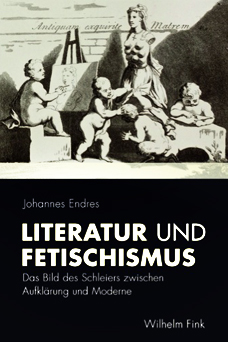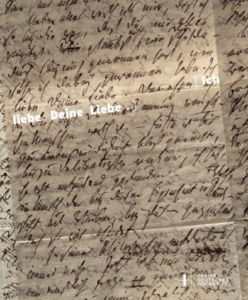 Ich liebe Deine Liebe. Der Briefwechsel zwischen Friedrich Schlegel und Friedrich von Hardenberg (Novalis). Eine Ausstellung im Deutschen Romantik-Museum, 26. April -28. August 2022. Katalog
Ich liebe Deine Liebe. Der Briefwechsel zwischen Friedrich Schlegel und Friedrich von Hardenberg (Novalis). Eine Ausstellung im Deutschen Romantik-Museum, 26. April -28. August 2022. Katalog
(The Correspondence of Friedrich Schlegel and Friedrich von Hardenberg. An Exhibition at the German Museum for Romanticism, Catalogue)
2022, FRANKFURT/MAIN: FREIES DEUTSCHES HOCHSTIFT
“I love your love”, writes Friedrich Schlegel in 1797 to his friend Friedrich von Hardenberg, known later also as “Novalis”. That is a new and unheard-of tone for a correspondence, even for a literary correspondence among poets. What had happened that made such a tone possible? The catalogue that accompanies the exhibition of Schlegel’s and Hardenberg’s epistolary manuscripts at the new German Romanticism Museum in Frankfurt attempts to answer that question by foregrounding the cultural and intellectual dimension of the relationship between both men and the friendship circle around them

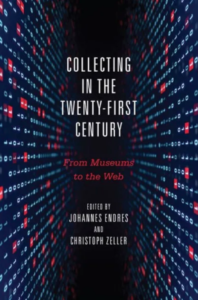 From Museums to the Internet: Collecting in the Twenty-First Century
From Museums to the Internet: Collecting in the Twenty-First Century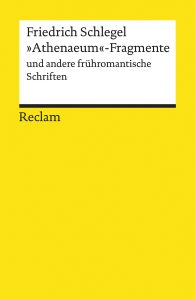
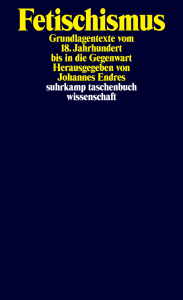 Fetischismus: Grundlagentexte vom 18. Jahrhundert bis in die Gegenwart (Fetishism: Source Texts from the 18th century to the present).
Fetischismus: Grundlagentexte vom 18. Jahrhundert bis in die Gegenwart (Fetishism: Source Texts from the 18th century to the present). Friedrich Schlegel Handbuch: Leben – Werk – Wirkung (Friedrich Schlegel Handbook: Life – Work – Reception), Stuttgart: J.B. Metzler, 2017.
Friedrich Schlegel Handbuch: Leben – Werk – Wirkung (Friedrich Schlegel Handbook: Life – Work – Reception), Stuttgart: J.B. Metzler, 2017.